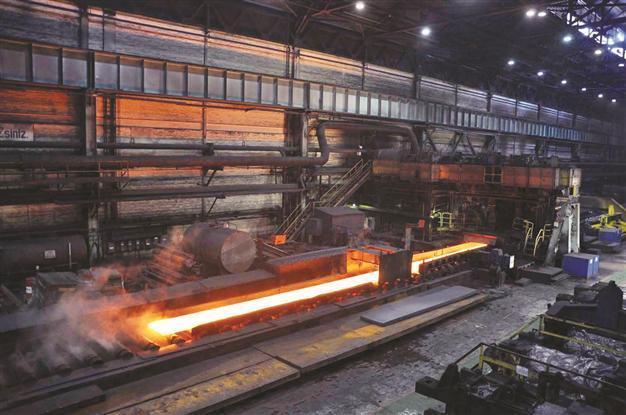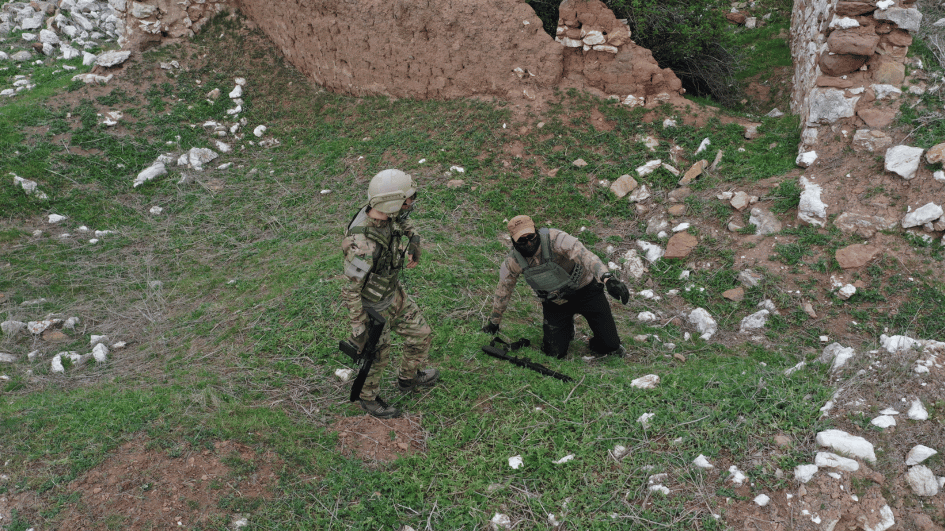Cheap steel from Russia, Ukraine hurts local mills
NEW YORK - Reuters

A blast furnace churns out molten steel at Erdemir, a steel maker located in the northern province of Zonguldak. The firm aims to make higher value added steel products. AA photo
Higher sales of Russian and Ukrainian steel into Turkey are putting downward pressure on steel prices and affecting domestic steel makers’ margins, an executive at Erdemir, Turkey’s largest flat steel maker, said on June 20.“Our regional competitors, Ukraine and Russia, are having difficulties in other markets so they are trying to dump their production into Turkey,” Kemal Özden, senior advisor to Erdemir’s chairman, told Reuters.
“Since the European market has softened up they have diverted their export to other places. Their exports to Turkey are going up. In order to sell higher volumes they are lowering their prices to unacceptable levels,” Özden said in an interview on the sidelines of the AMM Steel Success Strategies conference.
He said steel producers in Russia and Ukraine benefit from lower-cost domestic supply of raw materials.
Prices for flat steel products in Turkey have fallen by about 15 percent since a year ago. Long steel prices in the Black Sea area lost 10 percent of their value in the same period, mainly due to softer demand in the debt burdened euro zone and in the Middle East and North Africa.
Erdemir posted net profit of about one billion Turkish Liras ($568.43 million) last year, up 31 percent from a year earlier, and its sales jumped 35 percent to 8.92 billion lira in 2011.
The company said in April it expects sales volumes this year will be near 2011 levels, but lower prices are seen dragging down profits.
It hopes for a steel price recovery between the last quarter of this year and the beginning of next year as it expects a pick-up in some of its traditional markets.
In Libya, for example, it has already seen an improvement in steel demand as reconstruction starts after the end of a conflict that led to the overthrow and death of the North Africa nation’s former dictator, Muammar Gaddafi.
Higher value
Erdemir wants to move from basic grade steel, which it now sees as an over-supplied sector, into higher value-added steel.
“Everyone wants to work at full capacity, but when there is overcapacity everyone should be careful about what they are producing,” Özden said.
The company plans to invest in steel cold rolling and galvanizing and in new products for the automotive, white goods and packaging sectors as well as in the American Petroleum Institute steel grades to supply the oil and gas industry.
“We are moving into higher value products. As we go along we would like to move away from commercial grades because there is a lot of capacity in Turkey for these grades,” Özden said.
“There is overcapacity for hot-rolled coil for example.”
The major investment for the steelmaker is the construction of an iron ore mine plus a pelletizing plant in Turkey, which should start by the end of the year.
The company sees vertical integration as a key objective so it can compete with Russian and Ukrainian peers and avoid being squeezed between firm raw materials prices and declining steel prices.
Erdemir aims to become 60 percent self-sufficient in iron ore needs by 2015-2016.
To tackle raw materials price volatility, it looks to use steel, iron ore and coking coal derivatives.
“We haven’t used them yet but we are very interested,” Özden said. “We think there is a good future in these futures. I am sure commercial grade steel will go through exchanges.”
















